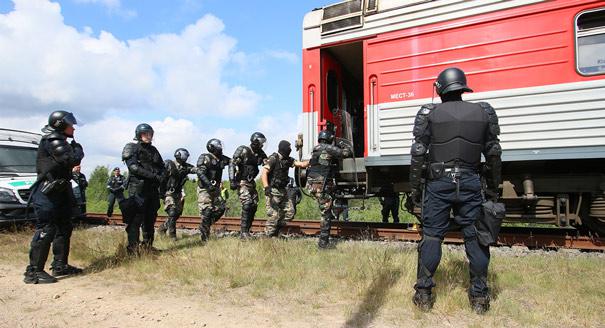On November 19, 1996, as the deputy foreign minister of Lithuania, I delivered a keynote speech on the Baltics’ campaign to join NATO at a conference in Stockholm. It was the first and probably the most comprehensive speech by a senior Lithuanian government official at the time on the subject. Among other arguments, I stressed that Lithuanian membership of NATO should be considered a powerful way of buttressing relations with Russia. I argued that “although memories of recent occupation are still alive, becoming part of the alliance and thus gaining recognition that our nation is an inalienable part of the Western democracies, Lithuania could further pursue an open and mutually beneficial economic partnership with Russia, and such a relationship is equally in the interest of Russia itself.”
Sixteen years have now passed since Estonia, Latvia, and Lithuania joined NATO and the European Union. The three countries are an integral part of the EU’s Nordic economic and financial subregion. We are also direct neighbors of Russia, with all the risks and opportunities that this entails.
While the COVID-19 pandemic has brought the importance of health security and health diplomacy to the forefront across the world, today’s security equation in the Baltic Sea region should primarily be considered in the context of Russia’s internal and external developments. Russia’s hybrid warfare, the illegal annexation of Crimea, and the war in Eastern Ukraine remain primary preoccupations for the Baltic states. Developments in Belarus and the uncertainty over the future of the Russo-Belarusian alliance constitute yet another geopolitical puzzle for the Baltics, Poland, and the EU at large.
With the support of NATO and its member states, we have been addressing the region’s most acute external security vulnerability: the Suwalki corridor between the Belarusian border and the Russian exclave of Kaliningrad. Closing that gap would enable Russia to cut the Baltic countries off from Poland and thus isolate them from the rest of the alliance’s territory. Since 2016, NATO has deployed four multinational mechanized battalions (4,500 military personnel) on a rotational basis to Estonia, Latvia, Lithuania, and Poland. These forward-deployed forces are the alliance’s tripwire, demonstrating NATO’s capability and resolve to defend the Baltic states and thus deter aggression.
The Baltic states also enjoy rotational support from the alliance’s member states in conducting an air policing mission. The Lithuanian government has been advocating for some time for relevant procedures and a mechanism to be established in advance to ensure the smooth transition of the NATO air policing mission to an air defense mission in a crisis. This would significantly enhance NATO’s deterrent effect in the region.
The Baltic nations have also shown remarkable resilience in response to cyber attacks and information warfare. Journalists, private individuals, and state authorities have helped to expose over 900 cases of misleading information on COVID-19 disseminated in multiple languages since January 2020.
That said, the Baltic countries also need to talk to Russia. Our interests coincide when it comes to avoiding unintended military incidents. A lack of communication and the absence of basic military-to-military contacts could escalate such incidents and lead to a real military confrontation. In this regard, dialogue on military risk reduction with Russia and Belarus is crucial.
Recently, various think tanks and expert forums have engaged in intense discussions of confidence- and security-building measures. A comprehensive menu of such measures is contained in the Recommendations of the Participants of the Expert Dialogue on NATO-Russia Military Risk Reduction in Europe, which was signed by a number of prominent former senior officials from both sides, including sixteen former foreign and defense ministers, and released on December 7, 2020.
The Baltic states, Russia, and Belarus should focus on three measures. The first is the full and unrestricted implementation of previously agreed commitments enshrined in the 2011 Vienna Document on confidence- and security-building measures and the Open Skies Treaty.
The second step is additional voluntary restraint and transparency measures, such as exchange of information on the size and scope of military activities in contiguous areas, which go beyond what is required under the Vienna Document.
The third and final step is the reopening or establishment of hotlines between relevant military commanders and headquarters.
Political will is sorely needed to start implementing these recommendations before it is too late. Realistically, this can be done within the framework of NATO-Russia military relations. A modicum of success at that level could create an atmosphere conducive to political dialogue leading to an arrangement providing for a more secure and predictable environment in the Baltic Sea region.
In my previous career as a Lithuanian diplomat and politician, I devoted considerable time to supporting and facilitating cross-border cooperation with Russia’s Kaliningrad region. I saw that as a critically important “soft security” engagement to maintain people-to-people contacts, implement environmental projects, and foster educational exchanges with our immediate neighbor.
This is particularly relevant because mutual distrust, a sense of insecurity, and a clash of worldviews remain deeply ingrained in the minds of policymakers in the Baltics and in Russia. While basic policies in Moscow and the Baltic capitals will probably remain unchanged for the foreseeable future, experts and analysts from the Baltic countries and Russia could resume a Track II (unofficial) dialogue of their own, aimed at better understanding the risks, concerns, opportunities, and limitations of the difficult relationships. When experiencing acute adversity, as we are now, we need to learn to manage it better.
This publication is part of the Security in the Baltic Sea Region project carried out with the support of the Royal Danish Embassy in Moscow.
